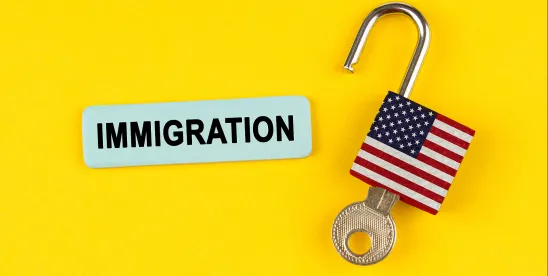On June 18, 2024, President Biden announced new pathways to legal immigration status for two groups: college-educated “Dreamers” and certain American family units.
Group 1: College-Educated DACA Recipients and “Dreamers” Who Qualify for Nonimmigrant Visa Status
“Dreamer” is a term generally used to describe an undocumented individual who was brought to the U.S. as a minor child and was raised and educated in the U.S. Most are unfamiliar with their country of nationality. President Obama established the Consideration for Deferred Action for Childhood Arrivals (“DACA”) program in 2012 to provide these individuals with work authorization benefits and protection from deportation. Some may also be eligible for other types of temporary relief, such as Temporary Protected Status (“TPS”).
Because most Dreamers were undocumented at one point, they cannot “fix” their immigration status without first leaving the U.S. and obtaining a new visa at a U.S. consulate abroad. Departing the U.S. then subjects them to a 3- or 10-year bar to returning to the U.S. absent a grant of a discretionary waiver. This makes leaving the U.S. to apply for a visa extremely risky.
President Biden’s announcement provides for preferential treatment to Dreamers in the visa application process and reduces the risk in departing the U.S to obtain a visa. To qualify, the visa applicant must:
- Have graduated with a degree from an institution of higher education in the U.S. or have earned credentials to engage in skilled labor in the U.S, and
- Be seeking to travel to the U.S. to commence or continue employment with a U.S. employer in a field related to the education that the applicant attained in the U.S.
Once the visa is granted, the applicant can return to the U.S. in a lawful work-authorized status.
Group 2: Spouses and Children of U.S. Citizens Who Have Been Living in the U.S. for at Least 10 Years
U.S. immigration law permits a U.S. citizen to sponsor his/her noncitizen spouse and child(ren) for lawful permanent residence (“green cards”). If the noncitizen family member(s) entered the U.S. without permission, the application process can be long and complicated and require an interview at a U.S. consulate abroad, subjecting the noncitizen family member(s) to the 3- or 10-year bar described above and the uncertainty of being able to return to the U.S.
President Biden’s announcement provides the means, in some cases, for these noncitizen family member(s) to go through a shorter, less complicated green card sponsorship process that can be completed without leaving the U.S. To be eligible, the noncitizen family member must, as of June 17, 2024:
- Have entered the U.S. without admission or parole;
- Have been continuously present in the U.S. for at least 10 years;
- Have a legally valid marriage to a U.S. citizen, or have a qualifying stepchild relationship with a U.S. citizen; and
- Not have a certain criminal history or pose a threat to national security or public safety.
Those who meet these criteria may be considered, on a case-by-case basis, to be granted parole-in-place for a one-time period of three years. There are two benefits to being granted parole-in-place:
- The ability to apply for and be granted employment authorization; and
- The eligibility to complete the green card process while remaining in the U.S.
When Will These Immigration Programs Begin?
For Group 1, U.S. Department of State (“DOS”) has updated the Foreign Affairs Manual instructing consular officers on the streamlined process for Dreamers to apply for nonimmigrant visa waivers. For Group 2, U.S. Citizenship and Immigration Services (“USCIS”) has announced it will begin accepting applications on August 19, 2024, and will reject any applications filed before that date. USCIS will publish a forthcoming Federal Register notice with information about eligibility and the application process. This program could also be legally challenged, which could impact its implementation.
Because not all grounds of ineligibility are covered by the new program, seeking competent legal advice before taking any action is highly recommended. This article is intended for general information purposes only and does not constitute legal advice. You should not act or rely on any information herein without seeking the advice of a competent, licensed immigration attorney.



 />i
/>i
